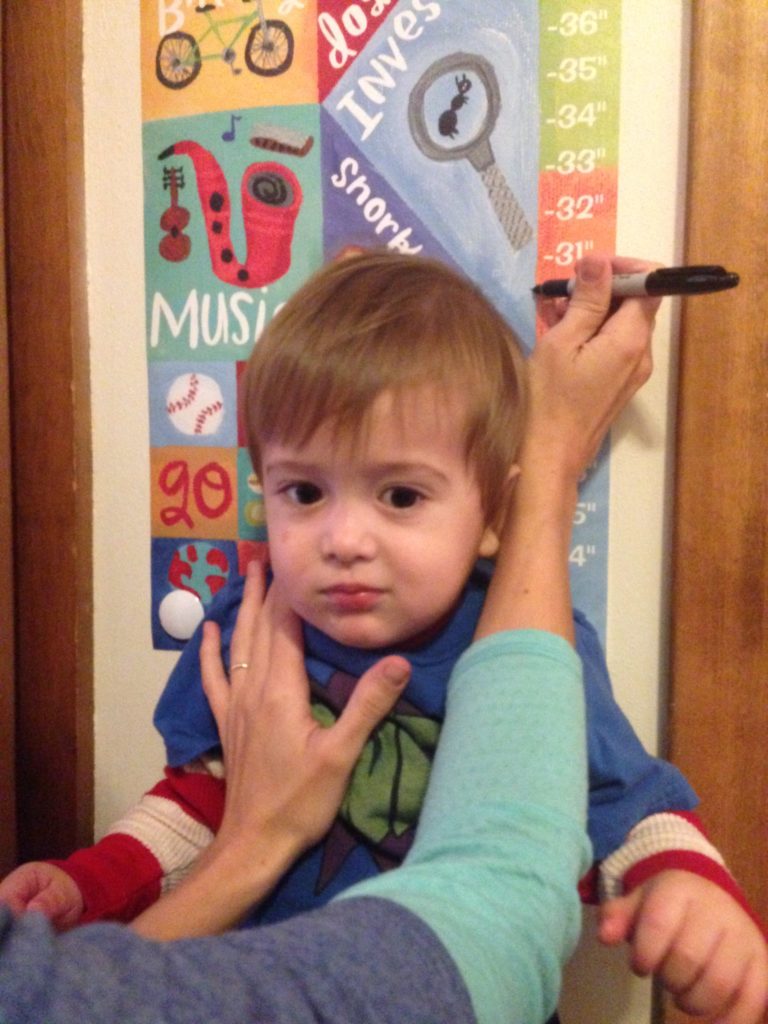The hardest thing about raising boys, in my opinion, is dealing with the myriad challenges that present themselves every. single. day.
I’ve been parenting boys for more than two decades now and there’s not a day that goes by that I’m not presented with some situation that I don’t quite know how to handle. My kid kicked another kid in the nuts – while standing up for a friend. What do I do about that? My teen joked about substance use during his mock interview. Should I be concerned? Do something? What?
This month on On Boys podcast, we tackled a lot of these everyday concerns — including, very specifically, the nut-kicking question. No one can answer all of your parenting questions and quandaries, but I will always do my best to point you toward reliable resources. Here’s a look at the topics we covered on On Boys in May 2019:
Helping Boys Deal with Negative Stereotypes (May 2 episode)

Boys are subject to negative stereotypes too.
If you’ve been parenting boys for awhile, that fact probably isn’t news to you. You’ve probably heard your son complain about teachers who treat boys differently than girls. Maybe you’ve seen the way other moms watch your son — and you — at the park, as if they expect your son to cause trouble at any moment.
If you’re new to parenting boys, it might surprise you to learn that a lot people assume (consciously and subconsciously) that boys are troublemakers. Worse yet, these assumptions color the way people talk about and interact with our boys — which affects our boys, socially and emotionally.
…Our boys already know that many people are quick to assume the worst about boys. They need us to acknowledge that fact. They need us to help them untangle stereotype from reality. We also have to equip our boys with the tools they need to stand strong in the face of anti-boy messages.
How to Raise a Boy with Michael C. Reichert (May 9 episode)

Michael C. Reichert is a psychologist, dad & grandfather of boys and the founding director of the Center for the Study of Boys’ and Girls’ Lives. He’s also the author of the recently released book, How to Raise a Boy: The Power of Connection to Build Good Men.
The key, he says, is to make sure your boys feel known and loved.
Many people today blame “toxic masculinity” for violent, entitled and racist behavior in men and boys. But blaming “masculinity” for these behaviors draws attention away from the ways the current method of raising and socializing boys leads to all kinds of harms, including loss of virtue, loss of connection and loss of humanity, Reichert says.
Unfortunately, stereotypes about boys & masculinity cause many of us to forget or neglect boys’ basic need for connection. Pushing a boy out of the nest too early — insisting he go it alone with minimal support — does not lead to strength, resilience and grit. Boys who lack a solid relational anchor (usually, a strong relationship with a parent or other adult) are adrift — and these the boys who harm themselves and others.
Finding Balance & Handling Disrespect (May 16 Listener Q & A)

Deanna asked:
about the struggle of trying to find the perfect balance of keeping your boys busy enough to stay out of trouble, yet not overscheduled
Erin asked us how to handle a “chatty” son who insists he’s the one being unfairly targeted at school
Will He Ever Grow Up?!? (May 23 episode)

But to anxious parents, the when do they grow up? question is anything but funny. Parents of teenage boys wonder if their won’t-listen, leaves-his-clothes-all-around-the-house-and-never-wants-to-do-anything-but-play-video-games boys will ever turn into responsible young men who can hold down a job. Parents of toddlers wonder if they’ll ever be potty-trained, and parents of preschool boys wonder if their guys are prepared for kindergarten.
…Of course, our worries aren’t unfounded. There’s plenty of reasons to worry about boys’ preparation for the future…[However] Boys’ and girls’ brains and bodies develop according to unique timetables.
Teaching Boys Social Skills (May 30 episode)
(Note: This is the episode in which I asked about the nut-kicking episode mentioned in the intro!)

Boys interact differently than girls do.
Sure, some of that is socialization. (A lot of that is probably socialization.) But the fact remains: boys’ interactions on the playground, in school and at home are different than girls’. The way boys greet and play with one another is different than the way girls do so — and if you’re a mom or teacher of boys, odds are good that you’ve never been a boy yourself and don’t understand the nuances of male interaction.
…Ryan Wexelblatt is a licensed clinical social worker who…helps boys navigate friendships and social situations. Listen & learn how you can support your boys’ social development.
Got a question or topic you’d like us to tackle on On Boys? Let us know by leaving a comment below!
Coming next month: Helping Boys Transition from High School to College, a conversation with the guys at Backcountry and Barbells (these two have great insights on weapons play and school) and a deep discussion with Jonathan of Breaking the Boy Code







2 Responses
So my wife and I adopted a 9 year old with major issues. 1 being R.A.D (Reactive attachment disorder). We knew it would be tough and it has been. He is now 13 almost 14 a d he is doing great. Although in the last month he has turned I to an asshole. Disrespectful, ungreatful and messy. Has no drive to do better in anything and this is the time of year he has consistently gone backwards in school. We have and are going bacj to therapy. He does not believe in God and has been really messed up from previous adopted parents and foster parents. Again he has come along way but any advise on a subject that we can touch, hug or even touch his food because we touched it. I know we need major prayers and maybe that is why I am asking for advise
Hi Joe — I can hear your pain, and my heart goes out to you, your wife and your son. My first thought: Go listen to this podcast episode: https://www.on-boys-podcast.com/parent-from-love-not-fear/
It’s a conversation with Bryan Post, the founder of The Post Institute, which you’re also going to want to look up. Bryan was adopted himself, and has spent his career helping adoptive families, particularly those struggling as yours currently is.